��
�Ӱɴ�ý’s Center for Civic Engagement appreciates and is inspired by the work the “Kyrgyz Federation for the Blind” undertakes. Starting from the 2021-2022 academic year, CCE aims to support the federation and collaborate on joint projects between organizations!
��
The public association, “Kyrgyz Federation of the Blind”, is a group of active young blind people who help other blind people to live a normal life.
For seven years now, the organization has been working on a project for the social and psychological adaptation of blind people to independent life. Currently, there are about 70 blind participants who successfully graduated from their program in Kyrgyzstan.
Besides the social and psychological adaptation program, this association oversees the following activities:
��
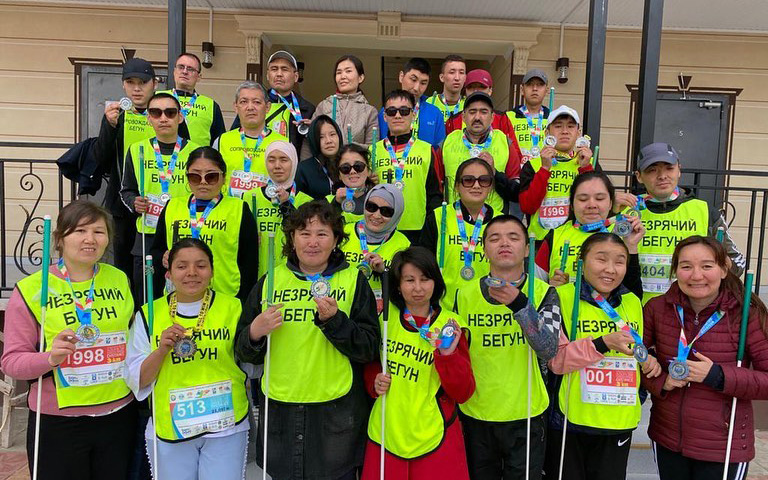
��
��
Gulnaz Juzbaeva is an activist for people with disabilities and the founder of the "Kyrgyz Federation for the Blind".
Despite the challenges experienced due to visual impairments from an early age, Gulnaz became an inspirational leader. She organized multiple programs for social adaption of the blind, graduated from the MBA program at �Ӱɴ�ý, as well as several other institutions, and was featured on the BBC's list of the 100 Most Influential and Inspirational Women in the World in 2020.
��
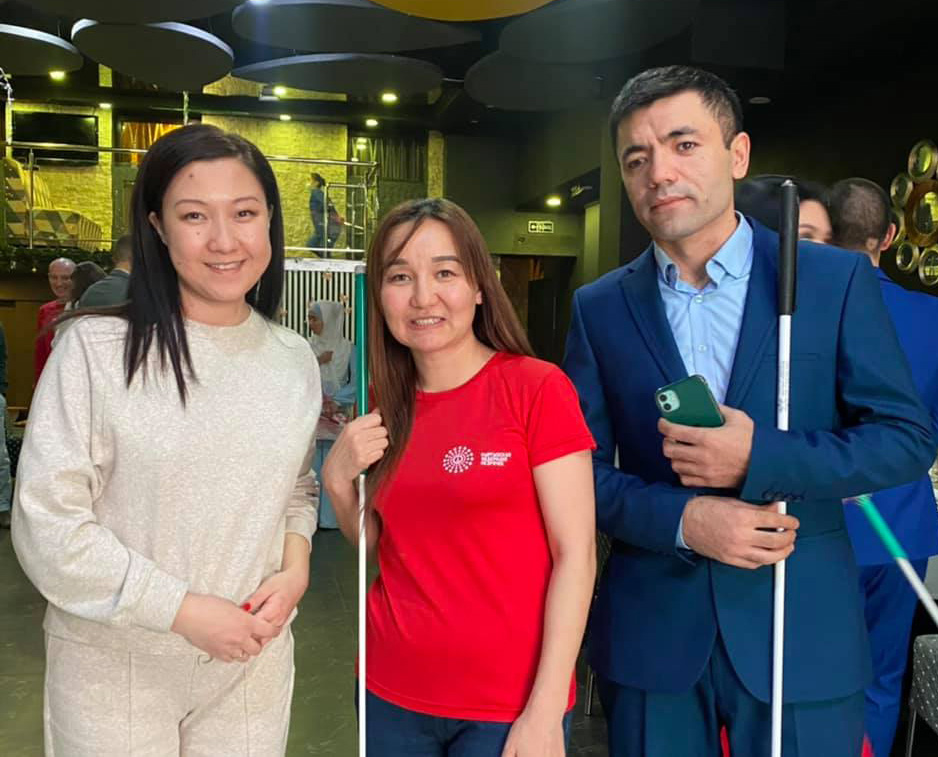
��
Below you can find more information about Gulnaz and her work based on the interview the Center for Civic Engagement took with her.
��
We are a group of active young blind people who help other blind people to live a normal life. Thanks to advances in technology and special techniques, people with visual impairments can lead fulfilling and productive lives today, and our task is to teach them this. We encourage the blind to rely on their own strengths, to believe in themselves again, and strive for complete independence.
Currently, the main direction of our work is the training “Start living differently”, based on the campus model. Within 6-9 months, we teach [blind people] how to move around and solve everyday problems. In parallel, we conduct training in several courses; an important part of the training is psychological rehabilitation - an adaptation of a visually impaired person to their new selves. We also attract them to lead a healthy and active lifestyle, do sports and integrate into a healthy society.
For seven years now, our association has organized a project for the social adaptation of blind people to independent life, thanks to the support and provision of charitable assistance from private donors, domestic business organizations, and international organizations. Our team managed to attract a donation for conducting free training. Thanks to our own efforts and support from commercial companies in Bishkek, we have the opportunity to further employ the most promising graduates of our school. Moreover, this project will allow us to train more instructors to expand our services.
We have already released about 70 blind graduates in Kyrgyzstan. Social and psychological adaptation of adults with visual impairments, a special methodology based on the campus model of education, with full immersion in the social environment, as well as teaching reading, writing, computer skills, and household self-service skills allow to effectively teach blind people to move independently with the help of a white cane and live more confidently. This is the basis of the life of a blind person in order to be realized in society.
Since 2017, we have been cooperating with �Ӱɴ�ý. We are very grateful to the leadership and the large staff of the university for the opportunity to conduct our program within the walls of the campus. This is a huge support for the blind people of our country in their rehabilitation, adaptation, and integration into society.
��
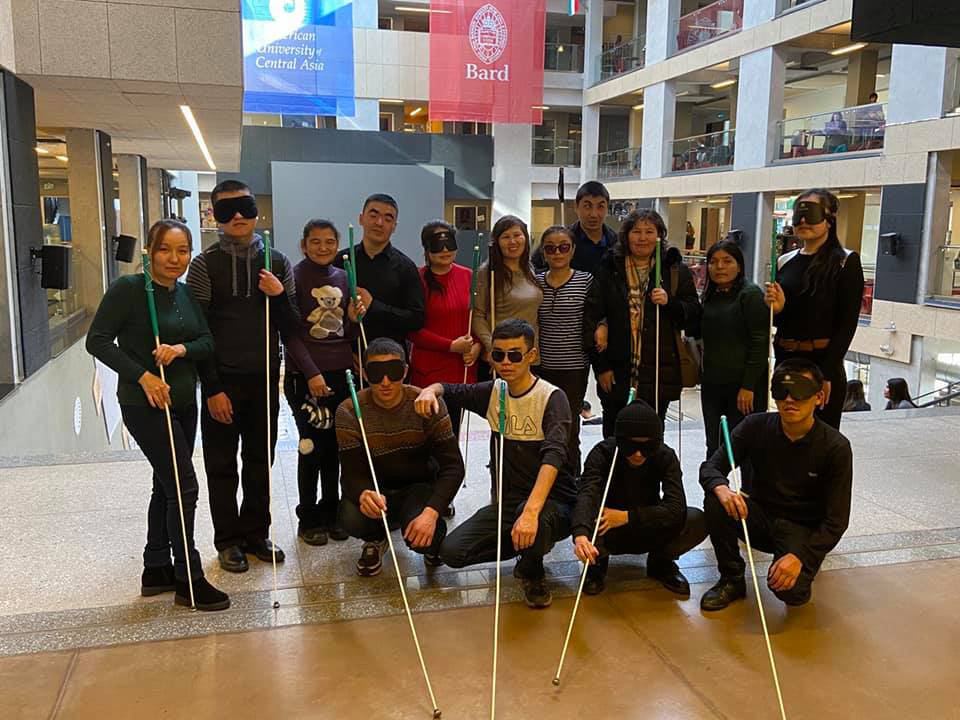
��
Also, our organization has begun to develop the sports of the Paralympic Games among the blind for five years now. Now, our graduates are engaged in:
Many of our guys are involved in track-and-field athletics, mainly running and swimming. In addition, our graduates started playing football for the blind. These sports are developed thanks to volunteer coaches and with the support of local donors. We cooperate with different federations, judo, para-triathlon, etc.
We are also working to protect the rights of people with vision disabilities and are fighting for the availability of information for the blind. In order to distribute Braille, we created a Braille library and a small printing house where we ourselves prepare and publish books in Braille for the blind. The collection contains about 1000 Braille books of contemporary literature, which our listeners actively "read".
��
I was born blind, and there were a lot of difficulties and limitations in my life just because I can't see. Of course, to overcome all those difficulties, I had to fight many stereotypes. I always wanted to be useful to someone and not become a burden. I tried to study a lot, always looking for new opportunities for us, the blind. I acquired a lot of knowledge and experience on how to create new opportunities for blind people in our country and abroad. Since then, I have been sharing my knowledge and skills with other blind people, helping them to acquire a new independent life.
��
Always do good deeds for those who need it, and change our world for the better.
��
I graduated from several universities despite the difficulties, was able to visit about twenty countries of the world, gaining a lot of experience and knowledge. I opened up new opportunities and was able to create a team to help the blind people of our country. We helped more than 70 blind people to acquire a new positive life. In addition, I was featured on the BBC's list of the 100 Most Influential and Inspirational Women in the World in 2020.
��
There are a lot of plans. At the moment, [I want to] create a resource center for blind students in our country, where we could help make educational materials in an accessible format, where students would be able to get advice on the educational process in universities, where there will be a library where we can find all the literature we need in an accessible format, like Braille books, books with an enlarged font or e-books, etc.
I have a big dream to open a department where specialists would be educated to work with people with disabilities. In order to introduce inclusive education in schools and universities, we need typhlopedagogues (i.e., visual impairment specialists), but we do not have such specialists in our country. Also, [I want] to build a large rehabilitation and sports complex for the development of Paralympic sports.
��
��
Hayothon Husan kyzy is a Champion of Kyrgyzstan in para judo, placed 4th in the 2021 Grand Prix Warwick in England, graduate of the "Kyrgyz Federation of the Blind", member of the women's team in para judo and football for the blind since 2019 and self-service instructor there. In 2021, she became the first blind athlete to represent the Kyrgyz Republic in the Paralympic Games in para judo in Tokyo.
��
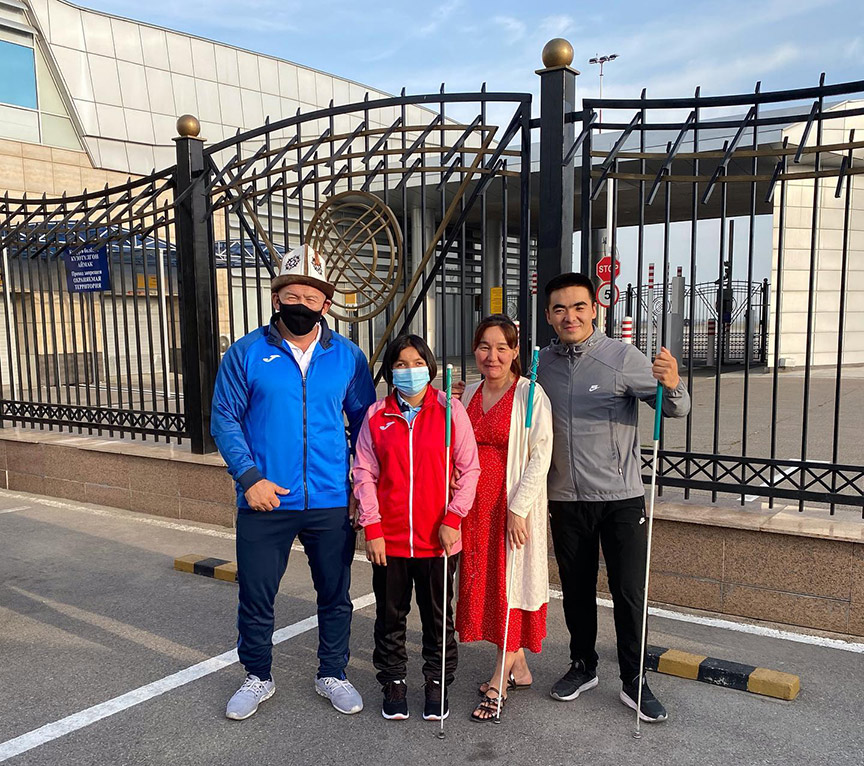
��
Below you can learn more about Hayothon and her path of success.
��
I was born in the city of Osh on March 13, 1994. My family has six children, and I am the fourth child. Blind from childhood. As for education, I graduated from a boarding school for the blind and visually impaired children in the city of Osh. Graduated from Volga State University, from the faculty of World Languages. [I am] a graduate of the rehabilitation training of the "Kyrgyz Federation of the Blind" in 2019.
Currently, I work as an instructor in this organization. I have been a member of the women's team of the "Kyrgyz Federation of the Blind" in para judo and football for the blind since 2019. [I am] a Champion of Kyrgyzstan in para judo; I was placed 4th in the 2021 Grand Prix Warwick in England; I took first place in the international Issyk-Kul marathon at a distance of 21 km among people with disabilities. [At the moment], I live in the city of Bishkek.
��
When I arrived in Bishkek to study for an independent life in the training "Start living differently" of the “Kyrgyz Federation of the Blind” in 2019, they showed me how to go in for sports and taught me to gain self-confidence. One of the sports activities [there] was judo, and I started attending training sessions. Then, after finishing the courses, I continued to train in judo.
��
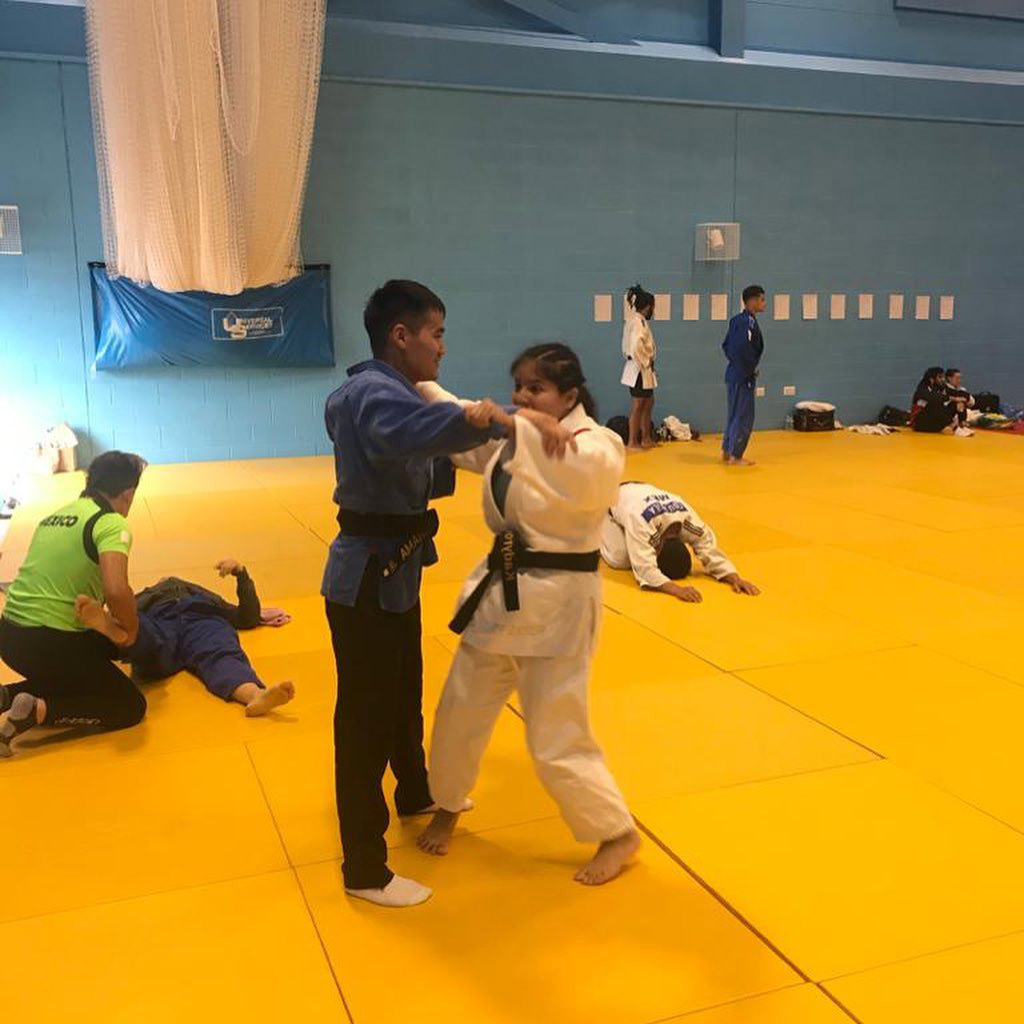
��
It was unexpected for me, but at the same time, joyful. After all, we all dreamed of getting to the Paralympic Games in Tokyo. Yet, I was very nervous and tried very hard to train well and perform well. When I got to the opening ceremony of the Paralympic Games, I was very happy because I dreamed of getting to such an event when I was little, but back then, I did not know how I would get there. It was also very exciting to represent our country among the 183 countries of the world in the parade. And, of course, the fight itself was a very crucial moment. Fighting among the strongest opponents from other countries was a great experience for me. It is a huge achievement for me and for my coach that I got to the Paralympic Games in just two years of work.
��
I heard about the training when I was in school, and I also knew Gulnaz ezhe. I decided to come to this training because I didn't want to depend on my family and friends all the time. I didn't want to ask someone to take me somewhere all the time. Thus, this [training] was the best solution for me. There I learned a lot, and the most important thing [I learned] was to have a positive attitude towards blindness, towards life, and never stop there. Thanks to this training, now, I live on my own, work in this organization as a self-service instructor, and, of course, exercise in para judo. Once I did not believe that it was possible. But here I was told that it was possible to go in for sports and achieve some results. [Thus], I got to the Paralympics.
��
I would like to become an example for other blind children, who stay at home and cannot live on their own, to help them live free from their families.
As for sports, I want to train even better and go to the next Paralympic Games in Paris and win the gold medal in para judo in my category.
��
��